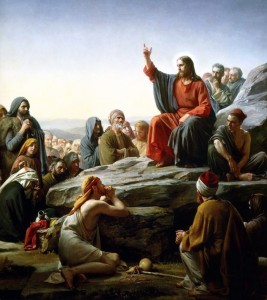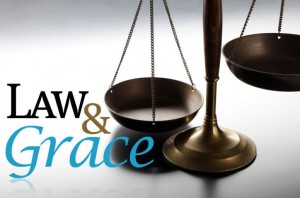A Biblical Response to the UBF Definition of Church
 The new UBF history website created in 2013 attempts to define “church” on this page. After that, it tries to build a case, based on this definition, for UBF’s chapter structure. The definition of church used, however, is simplistic at best, and biblically and church-historically inaccurate at worst. In other words, there are many ecclesiological problems with the definition of church (The branch of theology that teaches what scripture has to say about the church is called “Ecclesiology”).
The new UBF history website created in 2013 attempts to define “church” on this page. After that, it tries to build a case, based on this definition, for UBF’s chapter structure. The definition of church used, however, is simplistic at best, and biblically and church-historically inaccurate at worst. In other words, there are many ecclesiological problems with the definition of church (The branch of theology that teaches what scripture has to say about the church is called “Ecclesiology”).
First, notice that sections of the italicized definition are pasted below and numbered, followed by questions/comments that can help expose the underlined errors therein and (perhaps incompletely) point to some more biblical perspectives.
Second, a much better definition of the church (by no means the only one), is provided. I adapted this definition from a class on Ecclesiology at Reformed Baptist Seminary with Greg Nichols. I loved his class because he drew on no other sources than the scriptures (as will be evident).
Third, I will suggest positive steps for UBF’s future, pointing out that UBF shouldn’t identify itself as a local church (in form) while it almost exclusively operates as a para-church (in function). Based on concepts from 9Marks, I suggest UBF either fully commit to para-church life, or reform into an association of local churches.
Critique My Resurrection Sermon
 This past weekend, Hyde Park, Waterloo and West Loop UBF gathered for a combined Easter retreat in Michigan. It was fresh, spirited and joyful. It was planned, organized and led in its entirety by young leaders–without any interference from old folks like me! Perhaps, that’s why it felt spirit-led and spirit-filled, especially the spirit of joy and laughter that is rooted in tears of repentance. My longstanding conviction has been that young leaders who are called by God may lead in the forefront, while older leaders step back and fully support them in all ways possible.
This past weekend, Hyde Park, Waterloo and West Loop UBF gathered for a combined Easter retreat in Michigan. It was fresh, spirited and joyful. It was planned, organized and led in its entirety by young leaders–without any interference from old folks like me! Perhaps, that’s why it felt spirit-led and spirit-filled, especially the spirit of joy and laughter that is rooted in tears of repentance. My longstanding conviction has been that young leaders who are called by God may lead in the forefront, while older leaders step back and fully support them in all ways possible.
Law and Grace, Moses and Paul
 Is there a conflict between law and grace? Does Paul contradict Moses?
Is there a conflict between law and grace? Does Paul contradict Moses?
Grace alone. Alternate perspectives and counter comments have previously been bantered about, but I thought it good to articulate in one article the (Reformed) perspective that best expresses my understanding and my faith. The key is that only the grace of God (never man’s merit) leads to redemption and blessing, both in the OT and NT.
Critique My Sermon on Wrath
 GOD’S WRATH FLOWS FROM HIS LOVE
GOD’S WRATH FLOWS FROM HIS LOVE
(a sermon based loosely on Romans 1:18-32, delivered at Hyde Park on 9/22/13)
The topic for today is wrath. More specifically, the role of God’s punishment in understanding the gospel. This is a topical message, and I hope that you will bear with my ramblings, listen critically, and judge for yourselves whether or not I am being faithful to the witness of Scripture.
The gospel is summarized by John 3:16: “For God so loved the world that he gave his one and only Son, that whoever believes in him shall not perish but have eternal life” (Jn 3:16) The gospel is good news of love and life. But there’s a flipside to that in certain gospel presentations, that if you reject the good news, there will be “hell to pay.” Sometimes that flipside becomes the main story. As in that famous sermon by Jonathan Edwards, “Sinners in the Hands of an Angry God,” which depicts the non-believer dangling over a pit of hellfire, held up by only a spider’s web which can break at God’s whim. The message is that, unless and until we believe in Jesus, we are the objects of God’s wrath. ”For God was so ticked off at the world that he gave his one and only Son…” Now some people will say that the Church has gotten too soft, that we have become morally lax and ineffective in our witness because we’ve stopped confronting people with their sin and no longer warn them about God’s wrath. And others will say that we should stop up talking about wrath altogether, because it gives an ineffective and misleading picture of what the gospel is about.
The Shepherding Movement and UBF (Part 1)
 There is a book making rounds among many churches by John Bevere called “Under Cover: The Promise of Protection Under His Authority.” It’s been some time since I left UBF, but I certainly do have heart for the many individuals that remain in this ministry, not to mention the many new believers whose first Bible study takes place in UBF. In this series I am simply going to present several short articles going through Allan Clare’s review of the “Shepherding Movement” from the 1970’s and its connection with John Bevere’s 2001 book “Under Cover.”
There is a book making rounds among many churches by John Bevere called “Under Cover: The Promise of Protection Under His Authority.” It’s been some time since I left UBF, but I certainly do have heart for the many individuals that remain in this ministry, not to mention the many new believers whose first Bible study takes place in UBF. In this series I am simply going to present several short articles going through Allan Clare’s review of the “Shepherding Movement” from the 1970’s and its connection with John Bevere’s 2001 book “Under Cover.”
Continue reading →
What is the Central Theme of Your Life?
 I am reading John Frame’s magnum opus–Systematic Theology: An Introduction to Christian Belief. It is 1,220 pages. I am surprised that I am enjoying reading it. My first of many reflections is to ask, “What is the central theme of your life?” “What is the central theme of Jesus’ life?” I thought of this because Frame wrote that many theological writers have one theme around which they structure their writings.
I am reading John Frame’s magnum opus–Systematic Theology: An Introduction to Christian Belief. It is 1,220 pages. I am surprised that I am enjoying reading it. My first of many reflections is to ask, “What is the central theme of your life?” “What is the central theme of Jesus’ life?” I thought of this because Frame wrote that many theological writers have one theme around which they structure their writings.
- Martin Luther (1483-1546): justification by faith alone.
- John Calvin (1509-1564): the sovereignty of God.
- Immanuel Kant (1724-1804): ethics.
- Friedrich Schleiermacher (1768-1834): feeling. Continue reading →
More work equals more blessing?
 In this article I’d like to discuss a clear ubf teaching that I heard very many times in my ubf chapter in Yekaterinburg. Brian provided us some space to discuss the ubf heritage through his series of articles. Somewhere he said that the heritage is very tricky and not clear so it can lead to different teachings in practice depending on the situation and “sheep’s spiritual condition”. But there are some very clear things in ubf teachings upon which the ubf practice and reality is based. And I want to discuss one of these clear ubf teachings.
In this article I’d like to discuss a clear ubf teaching that I heard very many times in my ubf chapter in Yekaterinburg. Brian provided us some space to discuss the ubf heritage through his series of articles. Somewhere he said that the heritage is very tricky and not clear so it can lead to different teachings in practice depending on the situation and “sheep’s spiritual condition”. But there are some very clear things in ubf teachings upon which the ubf practice and reality is based. And I want to discuss one of these clear ubf teachings.
Let’s Reform UBF
 After reading Joe’s article about CMI and some private conversations, I am compelled to share and document the following declaration of reform. This declaration was the primary document expressing the concerns of more than 50 long-time UBF leaders. All of this group was labeld the “R-Group” and were kicked out of UBF by official termination of their UBF membership in 2000 and 2001. Now 12 years have passed by. Samuel Lee has passed away. Has UBF been reformed? Did UBF leaders listen to these issues? Do the same issues remain today? Does UBF need reform? Is reform possible? Will you join in reforming UBF to be a healthy Christian organization?
After reading Joe’s article about CMI and some private conversations, I am compelled to share and document the following declaration of reform. This declaration was the primary document expressing the concerns of more than 50 long-time UBF leaders. All of this group was labeld the “R-Group” and were kicked out of UBF by official termination of their UBF membership in 2000 and 2001. Now 12 years have passed by. Samuel Lee has passed away. Has UBF been reformed? Did UBF leaders listen to these issues? Do the same issues remain today? Does UBF need reform? Is reform possible? Will you join in reforming UBF to be a healthy Christian organization?
UBF Doctrine – Behavioral Slogans
 How then shall we live? I heard that famous question many times in ubf. In fact, the first 7 ideological points of the ubf heritage were often quickly taught or skipped in order to jump into the last 5 points: the ubf lifestyle. In ubf I was judged by what I did. And then I was judged by how much control I could exert to get others to behave according to these last 5 slogans. How I felt or what I thought was generally dismissed or ignored. What mattered, I was taught, was how I behaved. The last 5 slogans tell you just that.
How then shall we live? I heard that famous question many times in ubf. In fact, the first 7 ideological points of the ubf heritage were often quickly taught or skipped in order to jump into the last 5 points: the ubf lifestyle. In ubf I was judged by what I did. And then I was judged by how much control I could exert to get others to behave according to these last 5 slogans. How I felt or what I thought was generally dismissed or ignored. What mattered, I was taught, was how I behaved. The last 5 slogans tell you just that.
UBF Doctrine – Ideological Slogans
 Just to re-cap, next up on my systematic review is point 8 of the 12 point ubf heritage. This “house church” point begins a new section, which I call “behavioral slogans”. So before moving on, I feel the need to pause and briefly review where we are at.
Just to re-cap, next up on my systematic review is point 8 of the 12 point ubf heritage. This “house church” point begins a new section, which I call “behavioral slogans”. So before moving on, I feel the need to pause and briefly review where we are at.

Last 30 Comments